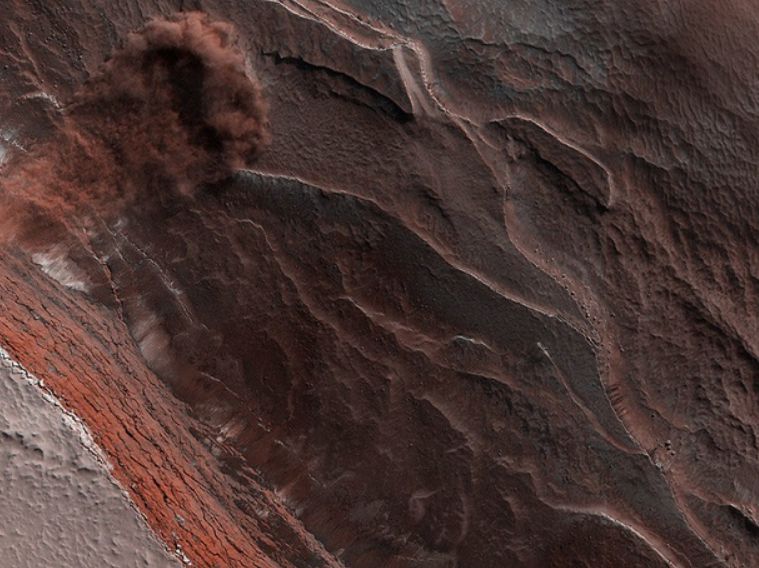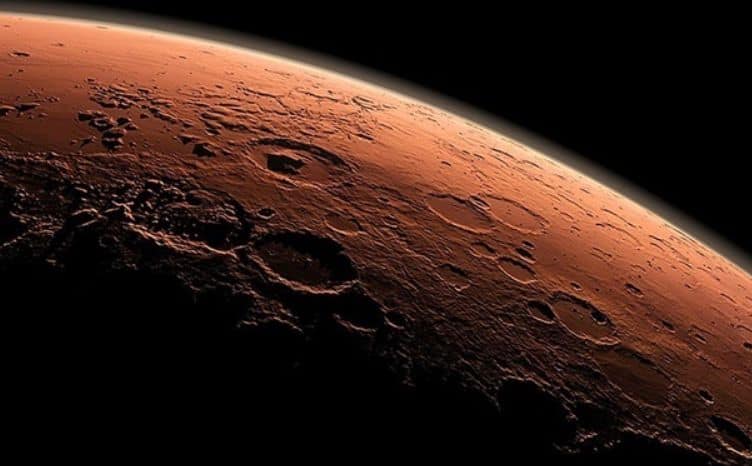An avalanche of ice and dust fragments was recorded while descending from a cliff 500 meters high.
NASA showed a snapshot of an avalanche on Mars. The photo appeared on the official website of the US National Aeronautics and Space Administration.
The Martian avalanche descended from a 500-meter cliff. According to scientists, the reason for the phenomenon was temperature fluctuations on the planet’s surface.

They occur on Mars during the springtime. As the temperature rises, the ice begins to evaporate, and its fragments come off and raise dust.
The photo was taken by the Mars Reconnaissance Orbiter (MRO) from a distance of 255 kilometres above the surface of Mars.
